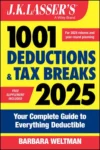Filing Season Begins
The IRS announced that the filing season for 2017 income tax returns begins on January 29, 2018. If you file earlier, with a professional or through tax preparation software, the return won’t be submitted to the IRS until January 29. Refunds can begin at that time. However, the IRS is barred by law from issuing refunds due to the refundable earned income tax credit or additional child tax credit until mid-February.
The deadline for filing 2017 returns is April 17, 2018. Those who cannot file by this date should ask for an extension to avoid late filing penalties. The extended due date is October 15, 2018.
Most returns are expected to be filed electronically. If you want to use IRS Free File, your income for 2017 must have been no more than $66,000. The IRS estimates that 70% of taxpayers are eligible for it (https://www.irs.gov/filing/free-file-do-your-federal-taxes-for-free).
Section 179 deduction (or First-year expensing)
A deduction allowed for investments in depreciable business equipment in the year the property is placed in service.



